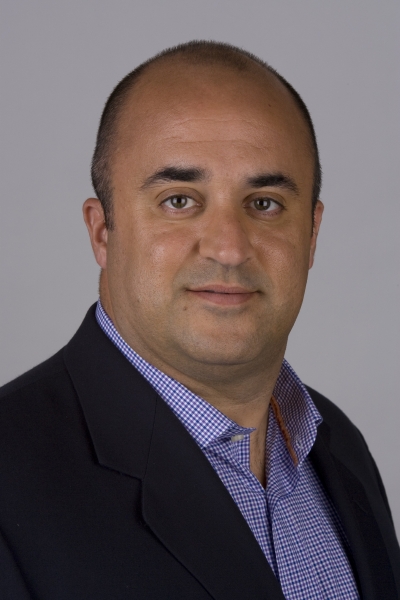
Every EMBA wants to be on the other side of the desk. They may not covet the CEO job, but that doesn’t mean they’re not seeking influence. Who wouldn’t want to help set the vision, seed the culture, and execute the strategy? For many, however, the c-suite roles of allocating resources, and developing underlings take a backseat to the technical – or what Kyle Moran calls “hard skills.”
Admittedly, Moran’s EMBA program taught him plenty about “carrying out nearest neighbor calculations to predict future outcomes” or using data-scraping Python code to “perform capability indexing to evaluate how well production output meets design specifications.” However, this 2018 Columbia Business School grad – who helped broker the sale of a Major League Baseball team between classes – found another set of tools even more valuable: soft skills.
LEADERSHIP STARTS WITH PEOPLE SKILLS

Cornell University’s
Ronnie Mimran
For him, these skills were the foundation for building the consensus and a can-do culture – and it was a mentality that started at the top. “As my Leadership and Organizational Change Professor, Paul Ingram, made clear: truly great institutions are able to teach the critical “soft skills” that you cannot pick up from an online course or a professional manual,” Moran says. “These include effective communication strategies, teamwork skills, and leadership qualities. My advice to potential executive MBA students is to not overlook the value of these soft skills.”
That’s not the only aspect that this year’s Best & Brightest graduates warn future students not to discount. The EMBA is the ultimate work hard play hard experience. It requires steadiness and stamina, as much as hustle and heart. Most important, it takes humility and an embrace of the unknown, unexpected, uncomfortable, and imperfect – not to mention a willingness to make sacrifices and push through jet lag and fatigue.
What else does it take to excel in business school as a working professional? Each year, P&Q asks its Best & Brightest EMBAs to share some advice to incoming students and potential applicants alike. Their first piece of advice? There is never really a right time to start business school.
NEVER GOING TO BE A “PERFECT TIME” TO START
“Just do it,” urges Cornell University’s Ronnie I. Mimran, a neurosurgeon and father of two. “I know it always seems like it’s not a good time in your life to take on this big of an undertaking, but as I have told many people, it’s like getting a puppy or having a baby — there’s never going to be a “perfect” time.”
So if you’re thinking about business school, it’s just a matter of carpe diem – “Seize the day,” right? While the University of North Carolina’s Lisa M. Fahl may agree with Mimran in spirit, she tempers her enthusiasm with a bit of practical advice. “Wait until you have experience in leadership so that you can truly take advantage of the program and apply your learnings immediately,” she writes. “Additionally, by waiting until later in your career, you have more experiences to share with the class making the whole experience more meaningful.”
The choice, in many ways, is the easy part. What takes work, counsels Vanderbilt University’s Michael Sumida, is getting families on board with how the program will change their daily dynamic. In his experience, an EMBA is as big of a commitment for family as it is for students. In fact, Michigan State’s Kyle Krause believes his MBA degree belongs to his wife as much as himself considering the sacrifices she made. His advice: Get your house in order now before the stress of 20 hours of schoolwork is added to your plate.
“DO THE BEST YOU CAN”

U.C. Berkeley’s Kate Mansalis
That’s exactly what HEC Montreal’s Claudia Desilets did – and discovered that school can swallow you up even with intensive planning and support. “Sometimes it’s too much,” she admits. “That’s when it’s important to know how to prioritize, and simply do the best you can.”
In any business school, the value of the degree is tied to the quality accessibility of the network. Katherine Mansalis, who helped teach residents and medical students at the Department of Defense’s largest hospital, took a proactive approach to learning about peers and alumni before joining the University of California-Berkeley’s Haas School of Business. Her advice?
“Go to a few events and meet current students to get a feel for the cohort; assess the level of support you feel from the admissions team and the program office; talk to other students in your same or similar place in their lives and ask what their biggest challenges were and are; and talk to recent alumni about their experience.”
IMMEDIATELY APPLY LESSONS TO WORK
Once you’re in school, adds the University of Chicago’s Brendan Downing, invest as much time as you can building relationships with your peers. “Everyone is busy and has a lot going on balancing family, work and the program, but you can learn so much about different industries and different individual perspectives on business by just talking with your classmates. Often times, your classmates can supplement the professor’s lecture with practical examples from their businesses.”
One of the major differences between full-time and executive MBAs is that the latter can apply theoretical frameworks and practical know-how to their companies immediately. Such real time benefits only enhance the return on the degree. That was true for Omar Rhiman, who served as a Honeywell regional director when he wasn’t busy running two social enterprises to aid the poor in the Middle East.





Questions about this article? Email us or leave a comment below.